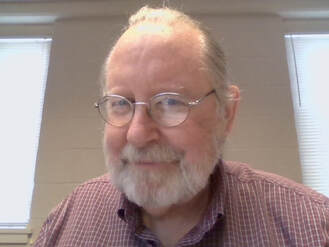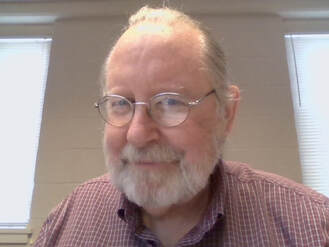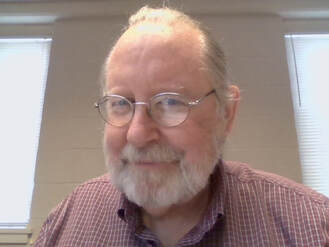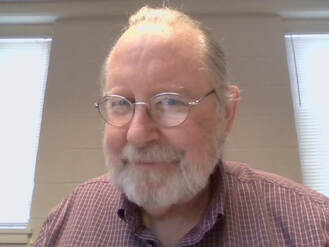|
Minister’s Corner
Mindfulness Psychology Today describes mindfulness as: “…a state of active, open attention to the present. This state is described as observing one’s thoughts and feelings without judging them as good or bad.” Mindful.com describes mindfulness as “the basic human ability to be fully present, aware of where we are and what we’re doing, and not overly reactive or overwhelmed by what’s going on around us.” I describe it as the simple ability to pay attention to what you are doing. Often, our family will be sitting around the table and eventually, someone takes out their phone and, without getting up from the table, exits the conversation, and my sister scoldingly says, “BE HERE, NOW.” Point taken. And sooner or later, she reaches for her phone, and everyone repeats her refrain. The truth is, we are distracted all the time. I’m frequently distracted while driving, preaching, eating, even sleeping. Being present to others and to ourselves is a rare gift. Mindfulness is something I’d like to explore with you during Lent. There are a lot of things to be mindful of, an exhaustive list that we won’t cover completely. Lent is a season of repentance, a time when we look ourselves in the mirror and task ourselves and each other with turning back and reorienting ourselves to God. To do that requires mindfulness. Here are the themes I’ve landed on for this mindfulness series: Repentance, Self, Creation, Compassion, Wholeness, Community, and Mercy. If we can walk away from Lent more mindful of these things, I’m convinced we will be better people and a better church. Look for an opportunity to participate in a 40-day mindfulness challenge beginning on Valentine’s Day, which is also Ash Wednesday this year. Peace, Scott
0 Comments
Each New Year brings the opportunity to set a resolution to make meaningful, positive changes in your life. Many people are skeptical of resolutions; statistics show that, as you might expect, it's easy to say you're going to make a change than to actually do it.
One thing is for sure—2024 is going to bring meaningful, positive change to my life. For one thing, I'll wake up in the morning of January 1 as a resident of Ohio, and go to sleep that night, God willing, as a resident of North Carolina. On January 2, I begin my work as your pastor, at long last. I'm excited, anxious, and yes, a little scared. These are all new things for me, and though I feel like my heart, mind and body are ready, things are going to be different, and that can be hard. Still, I'm so looking forward to getting started and worshiping with you on January 7 (and 14, and 21, and so on). It's an exciting time, for all of us, I hope. In Advent, we talk about hope, peace, joy, and love. The importance of those themes don't fade just because we hang a new calendar on the wall. I'm looking forward to living into those things, together with you, my First Christian family. It's going to be a Happy New Year! Peace, Scott  Greetings! Employment in a church is unique in so many ways, not the least of which is the lag in hiring someone and the beginning of the work. The last time you heard from me was October 1—doesn’t that seem like a long time ago? It sure does for me. I’m super excited, not only about starting my full-time employment, but also worshipping with you on December 10 and 24. Since I was with you, I’ve had some bumps in the road, finished out my Interim Ministry in Columbus, gone into contract on a home in Wilson, and started packing. While it seems like October 1 was a long time ago, January 1, my move date, looms over our house. This is our first out-of-state move, and we are learning the ins-and-outs. I’m anticipating it being the last one, at least for a good long time. My wish for you is that this Christmas season will be one filled with joy and peace for you and your loved ones. I get all the ‘feels’ at Christmas—it is a bittersweet season, full of goodness and generosity, but also memories of days and folks gone by. My intention is to always pay attention to how my heart is feeling, and it runs the gamut! It will be a different Christmas for me this year, as I will be moving away from close family members in Ohio in 2024. They have some opinions about that! Through it all, Advent is a season of anticipation and expectation. In a typical Advent, we are anticipating and expecting a Savior to be born among us. While I’m expecting and anticipating that, my biggest anticipation is beginning our shared ministry in January, at last! Peace, Scott It's been good to celebrate the baptisms of five of our young people!
Holy Week and Easter were wonderful. Lent was the busiest I've had in ages. While I know the church is not as busy at it could be, I'd have to say that you continue to surprise and please me by being more "member-driven" than "minister-driven," not waiting for me to decide where we're going! That's important. A member-driven church means that you are not waiting for your next pastor to come in and tell you what to do. It means that you are being a fully-mature church rather than a church that is in a holding pattern. It means that when a new pastor arrives, you'll be able to inform him/ her about what the church is about rather than saying, "We've been sitting here waiting for someone to come and get us going again." Jesus told the parable of the talents. You might remember it (Matthew 25: 14 - 30). The "master" decided to take a trip, so he called his three most trusted workers together and gave each of them some money to look after. Two of them invested the money and increased its value, while one just held onto it so he wouldn't risk losing it. For me, the similarity of this story to our situation is that most of you have invested your time and energy in some way that your faith and involvement have grown. Very few have just sat back and waited for "whoever is next." If you remember the end of the parable, when the master returned, only one of the servants got in trouble: the one who hadn't done anything. The church of today will be the church of tomorrow only if it is a member-driven church. We'll never be the church we were even 10 years ago, much less 50 years or more ago. That's not a bad thing. The world isn't what it was 10 years ago, and would be unrecognizable 50 or more years back! Let's face it: as recently as 25 years ago, "Google" was not even a noun, much less a verb! The changes that will be coming in the next five years will be amazing, unthinkable to some, but necessary if we are to do more than just survive. The church of Jesus Christ has never been about just surviving (those churches that have are, in many cases, barely recognizable as churches today or not in existence at all!). Those that adapt to the modern world don't die: they take the best of the world outside (computers, live streaming, and big screens in the sanctuary) and use them to make both strangers and members feel more at home in worship and during the week. The future isn't coming, it's already here (somebody else said that, and they were absolutely correct). The best way we can meet that future and not just be dragged along by it is to worship honestly, to love each other, and to offer compassion and service to the world in which we live. -jamie #fccwilson #fccwilsonnc #ncdisciples #ccdoc #greenchalice #greenchalicecongregation #talents #openandinclusive #openandinclusivechurch #openandinclusivechurchfamily  We are deep into autumn, arguably my favorite time of year. Technically, Christmas happens in winter, but Advent is really a fall season that ends about the time that winter arrives. Doesn't matter to me: once the Halloween decorations hit the yards, I'm ready for lights, cold temps, and Christmas carols starting two months out! For those of you who will tire of Christmas quickly, I understand. Sometimes, it's too much. But when I combine the sacred and the secular things that go with the season, I'm a junkie: there's never enough for me. It's not Christmas presents that get me going. It's the challenge of discovering again the meanings of all these special times that hit us from mid-October until Epiphany in early January. The liturgical year winds down with what some call "Christ the King Sunday" just before Thanksgiving, then revs up with Advent the Sunday after Thanksgiving. "Happy New (liturgical) Year" will be on my lips on Advent One, causing some people to grab their phones to see if by some chance they slept through December. Luckily, my reputation as a weird person allows me a certain amount of leeway when it comes to the strange things I bring to faith. I like marching to a different drummer, though: it challenges me to try to figure out how to be taken seriously while offering to people, those who also hear their own drum, a kindred spirit, one who won't always understand them but will accept them, no matter what, because we know, don't we? Christians are all supposed to be oddballs. We don't march to anyone's tune but God's. We listen for that tune, we hope to get our marching orders from it. Our "orders" are simply to love God, to love each other, and to love the people and the world that is all around us: NO EXCEPTIONS! In a time and in a nation that is full of people trying to separate "us" from "them," Christians have a message: THERE IS NO "THEM!" Shout it from the mountaintops and from the shorelines, in the stadiums and at the voting places: we are Christians, and we are, like God, in love with everyone. The Prince of Peace is coming, and at the end of this coming month, we will begin to get ready. November worship begins with All Saints Day, when we will remember our congregational brothers and sisters who entered their eternal rest this past year and joined all the saints of all time. We will be inspired to think about and share our Thanksgiving Offering for support of Disciples Higher Education ministries. Some of us will donate food for those who won't have a Thanksgiving meal without us. We will give thanks by sharing our blood at the next Red Cross Blood Drive. The church will be decorated for Advent. Youth and Adults will continue with fellowship groups and Christian education. And we will begin planning for the Great Feast which we will serve to the community on Christmas Day. Why wouldn't I be as excited as a child? This is our faith, this is who we are: First Christian Church (Disciples of Christ), Wilson, North Carolina! - jamie  Our Season of Faith is well under way now, and we are moving through our Age of Aquarius theme, which may seem a little at odds with Christian faith. Maybe it is, maybe it isn't. One of the things people struggle with in a pluralistic society such as ours is how much do we take from the culture at large and how much do we leave alone? George Washington Carver says this: "If you love it enough, anything will talk with you." In our faith, I paraphrase it this way: If you love God enough, everything will speak to you." What I mean by that is, God is not limited to just the Bible, or just to a church building, or to just our own narrow ways of looking at anything. The most open-minded of us are still narrow in our views when we compare ourselves to God! I believe, with all my heart, mind, and strength, that God will stop at nothing to get our attention and to draw us closer. Beautiful nature speaks to most of us, yet very rarely do cross-shaped things show up to us on most days. A flower fairly screams at us that God is trying to get our attention, but flowers never say, "I believe in Jesus." Lots of us like to go to the beach, or to a river or stream, or to the mountains; others love to look at the night sky; still others look at moving clouds and see all kinds of messages there. God hasn't called us to agree with each other: Disciples of Christ are notorious in our varied ways of interpreting scripture. What we ARE called to do is love one another. And God. And the world. Our Season of Faith challenges us to go deeper. It is being presented to us in songs that sometimes disturb us, in images that don't contain an ounce of a picture of Jesus in them, in sermons and prayers that don't seem quite to fit in to our usual mode, and even the way we dress (well, the way I dress!) may be a little out of sync with "normal." God loves us, and nothing can separate us from that love! Never fear: God is walking through this season of faith with us! - jamie  A word from the interim minister 50 years ago this third week in August (when I am writing this), I moved to Wilson to begin my college career a few blocks from here at Atlantic Christian College (I'm not one of the alumni who still don't accept the change: “a rose by any other name”. I tell you this only because it was the beginning of my relationship with this city which has played such an important part in my life. This place saw some of the biggest changes in my attitudes and practices that have ever happened, and planted seeds that are still producing. I drive around the neighborhood sometimes and think, "Didn't so-and-so live there?" or "I remember a party we went to there!" and "I helped move a fridge, stove, washer, and dryer up those stairs." And so on. Houses have changed, as has the person having these memories. Everything changes. Some things appear to stay the same. Whether we like change or not, change is the way that we stay alive. Refusing to change things in our lives can literally kill us. We can fuss about change all we want, but the truth is this, as my great-grandmother used to say: "If you're not changing and growing, you're either dead or dying!" Churches are like big ships: it's difficult to get them turned to go in another direction! Some changes we make are superficial, like rearranging the deck chairs on the Titanic. There are times when we need to slow the ship down a bit so we can figure out which direction we need to go. At other times we have to flip a coin and pray for God's protection as we venture into a dark and foreboding sea. At still other times, we have to make immediate changes just because there is danger ahead. There are some approaches I want to suggest for weathering these changes. They won't only help us in our church life, but may even effect our daily living in good ways. Here are my suggestions: 1. Pray daily. You don't have to be a saint or a mystic, just be totally honest as you talk to God or sit in silence with God. 2. When anger and frustration strike wherever you are, take a deep breath (maybe your mom or dad or teacher told you to count to 10 before acting in anger?). Put a picture in your mind of Jesus loving you. Say a faith word: love, mercy, grace, forgiveness, kindness, etc. 3. Talk calmly with people you trust. Actually saying some of the things that bother you out loud, and having a trusted friend or relative nod and say, "I understand, but also consider..." can help you work it out. It's okay to reply, "I know that, but still..." and so on! It might even turn humorous, like every time Renae reminds me to be a Christian, and I pout, which can be a funny sight! 4. Pray again. It's okay to say to God, "HELP!" But listen and watch and feel for God's reply. 5. Pray again. Nothing's so small that you should leave God out of it. No, this will not solve all your problems or frustrations. However, I believe that when we try to approach life in a Christian manner, we begin to practice in our daily life real Christianity. If we stand on faith that God lives with us, we discover that God really does! It's an amazing and wonderful and scary thing to encounter the living God; after the shock wears off, we find always that God was there all along. That's a change we can, literally, live with! - jamie  It's hot! With the heat usually comes a need for more rest, for a slower pace, perhaps a sense of idleness; yet here at First Christian, very little of that is happening! Still, there is a need for a slower pace. I recommend to everyone, "Go slower." Years ago, my kid brother, Joel, taught at the Eastern NC School for the Deaf. I worked at the Wilson Mall, at B. Dalton, Booksellers. Perhaps you and I passed each other in the store! Joel was close to a group of young high school students at the school who seemed, almost weekly, to show up at the bookstore, signing to each other the sign for "Joel's brother," which I seem to recall was a combination of sign's meaning, "Joel - boy - same." They would run to me excitedly at the cash register and begin talking to me in signs, and I would hold my palms out to them, shaking my head "no" and saying that I did sign. They were kind, laughing hysterically and continuing to sign to me, as though I would somehow, miraculously, be able to understand them. So, I asked Joel to teach me to sign some basic things, and to try to understand when someone signed an answer or a statement back at me. "How are you?" What are you doing?" "Are you all having fun?" "Do you want to buy a book?" All of which were seldom answered with anything but more hysterical laughter at my attempts to communicate, which usually came out to a sentence like, "How are you having a book?" So, I asked Joel to teach me how to say, "Go slower." It is, perhaps, besides "good," the only phrase I remember. As I've gotten older, the phrase is more important to me. It's something I want to try to do. It's something we all need to try to do. Our culture wants us to cram more and more "experiences" into our lives, so we drive to a waterfall in the mountains, jump out, take selfies or family photos, thus recording our experience at the water fall, then jump back into our cars to drive quickly to the next scenic view. We fill our time with being present for a few minutes, then are off to be present somewhere else; but we are never really present. So, go outdoors for a few minutes. Feel the heat. Maybe there's a breeze: feel that, too. Breathe. Bask in the warmth, in the air moving around you. Look at grass, trees, flowers, stars, clouds, birds. Listen. I think God lives in those spaces "between." Remember the scripture: "Be still, and know that I am God." Go slower. - jamie |
Authors
These thoughts and reflections come from our Senior Minister, Minister of Music and Board Chair. We hope that they provide both challenge and inspiration for your spiritual life. Archives
July 2024
Categories
All
|
#FCCWILSONNC
A Disciples of Christ Congregation located in Eastern North Carolina
207 Tarboro Street North | Wilson, NC
Corner of Vance & Tarboro Streets
252-237-4125
Updated: July 17, 2024 | 9:45am
A Disciples of Christ Congregation located in Eastern North Carolina
207 Tarboro Street North | Wilson, NC
Corner of Vance & Tarboro Streets
252-237-4125
Updated: July 17, 2024 | 9:45am
Proudly powered by Weebly


 RSS Feed
RSS Feed
